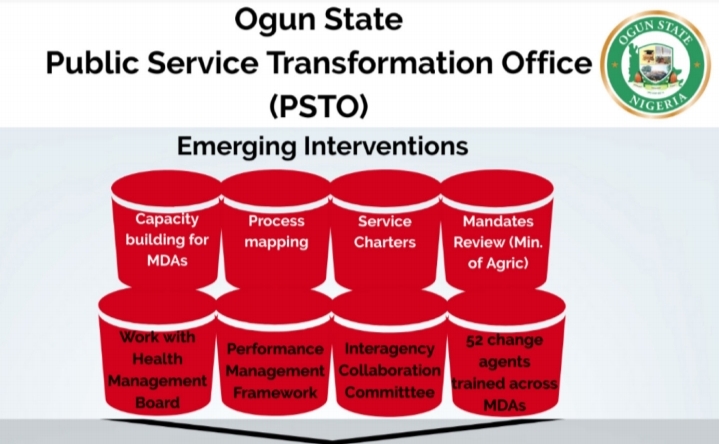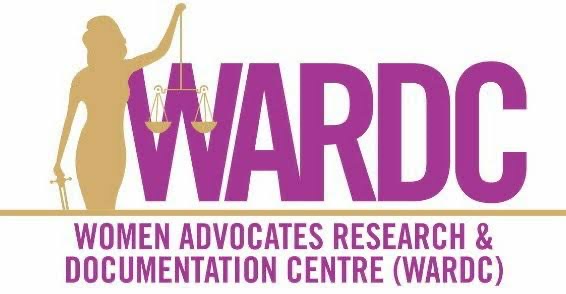
Actualising Ogun Development Plan Through Public Service Reform
Reforming a society from a relatively underdeveloped polity must be a planned one in which the government, through its departments, are the principal driver of the development effort.
The idea of embracing a reform to discard the old method of operation for the trending ones gave rise to the Public Service Reform in Nigeria as envisioned by former President Olusegun Obasanjo in a publication in 2006.These reforms are meant to serve as a corrective framework that pushes the agenda of government, such as making savings (economies) in public expenditure, improving the quality of public services, making the operations of government more efficient by ensuring the policies are chosen and effectively implemented.
Public sector reforms in post independent Nigeria first started with Morgan Commission of 1963, Adebo’s Wages and Salaries Review Commission of 1970, the Udoji Commission of 1972 amongst others. Also, the Ayida review panel of 1994 which brought about the Civil Service Reorganisation with the service being guided by relevant provision of the constitution, the Civil Service Rules, Financial Regulations and circulars.
As a matter of fact, it should be noted that, all the transformation or reforms that have taken place since Nigeria’s Independence were aimed at changing the way government perform its work by creating a more conducive, efficient and responsive public sector for Federal, State and Local government towards achieving a designed development plan for the country.

For Nigeria to achieve its set development plan, the Public service is expected to function as an instrument for social change and agent of development in terms of advancing human welfare and bringing about accelerated social-economic development.
The cry for Civil Service Reformation birthed the Bureau of Public Service Reform (BPSR) in 2004 to initiate, coordinate and ensure full implementation of public service reforms by driving changes that will position Nigeria’s public service as an institution of excellence. The Bureau also initiates action plan on reforms at different levels for the attention of the Steering Committee on Reforms; elucidating government policies on reforms; coordinating, monitoring and evaluating reform implementation activities; conducting research on implementation efforts and presenting best practices models; providing advisory and technical support services for change.
Part of these reforms are those that drive operations in the Office of the Accountant-General of the Federation which include but are not limited to; Treasury Single Account (TSA), International Public Sector Accounting Standard (IPSAS), implementation of Integrated Payroll and Personal Information System (IPPIS), Audit modernisation and Government Integrated Financial Management System (GIFMIS).
For Ogun State to be abreast of modern best practices and parade an efficient and proactive civil service where all government agencies will have capacity to actualise the State’s Development Plan, a reform coordinating agency, Public Service Transformation Office (PSTO), was established in March 2018, through Executive Order with a Permanent Secretary, as the administrative head. It is worthy of mention that the present administration under Governor DapoAbiodun has been utilising the platform of the Public Service Transformation Office in actualising the state development agenda as encapsulated in ISEYA acronym- Infrastructure, Social Welfare, Education, Youth employment, Agriculture.
Some of the areas of reforms included the establishment of the State Enterprise Development Agency to strengthen Small and Medium Enterprises (SMEs), establishment of the State’s Investment Promotion Agency to provide a one-stop shop and eliminate unnecessary delays in processing necessary documents and also the establishment of Public Private Office that ensures the state has a transparent and accessible business template.
Today, with the assistance of the Public Service Transformation Office, many agencies now have clearer understanding of their mandates. PSTO for instance, has been able to restore the approving limits, (semi autonomy) for the State Hospitals as Medical Directors no longer have to wait for approval, from the headquarters before carrying out their duties. Duty managers, comprising officers from different cadres, irrespective of their grade level, are now in most of the hospitals to make sure all officers on duty are at their duty posts, to report service failure and ensure service improvement.
PSTO has been able to help most of the hospitals develop a service charter, (an agreement between a service provider and client). The document will help them know their responsibility to the client and also help the client to understand the services they are entitled to from the hospital. Hospitals in Ogun State have been given facelift, directional signs, educational signs. The State Universal Basic Education Board (SUBEB) has also benefited from PSTO reform agenda in the development of the Board’s Service Charter.
It is indeed a new dawn in the Ogun State Civil Service as PSTO has been able to rejuvenate the Monitoring and Evaluation Department, the appointment of Director-General for the Bureau of Public Procurement, a Statistician-General for the Bureau of Statistics and set up the 2020-2022 Medium Term Expenditure Framework (MTEF) among others.
Oluwayemisi Onanuga
Press Officer, Public Service Transformation Office
FOOTNOTE: You want to share story with us? You want to advertise with us? You need publicity/live coverage for product, service, or event? Contact us on WhatsApp +2348073463653 or email penpushing@yahoo.com








